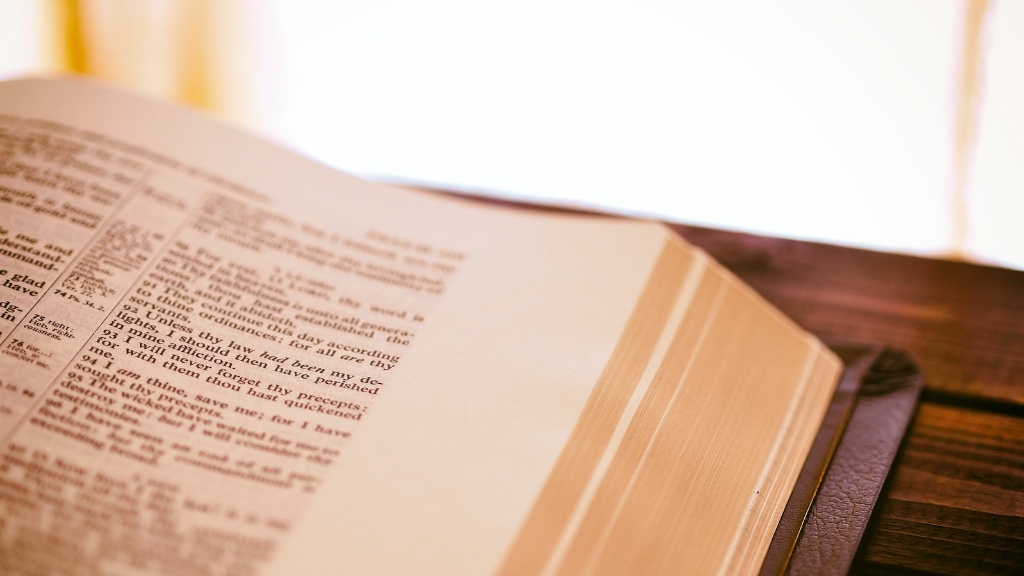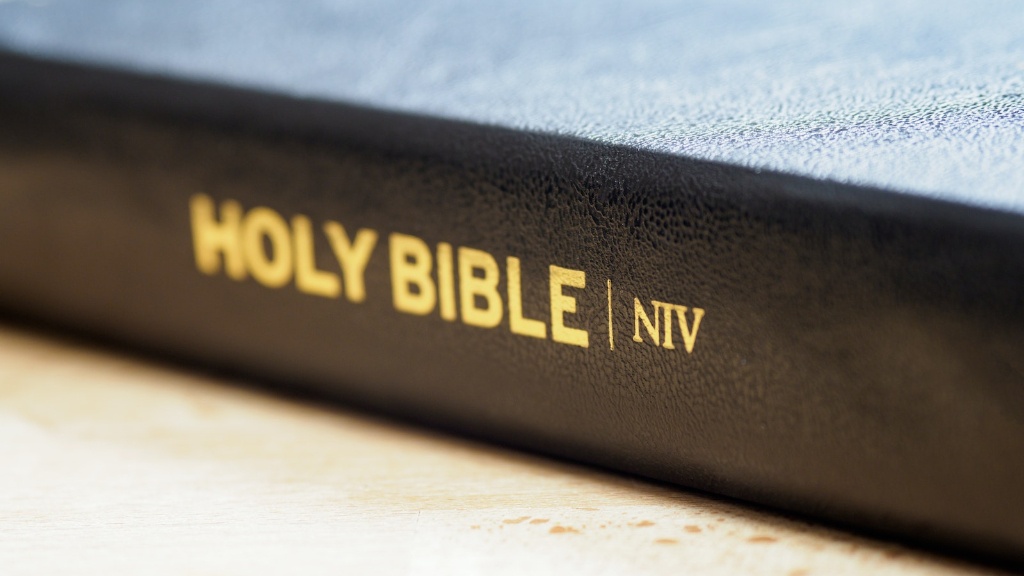Cassia is mentioned multiple times throughout the Bible, but it isn’t always clear what it is. Cassia is sometimes used interchangeably with cinnamon and sometimes appears to refer to a distinct aromatic spice. There seems to be no one absolute answer about what Cassia is, but there are interesting theories about its role in Biblical times, as well as its spiritual significance.
The Hebrew word for “cassia” is “кסה” or “cassia” which appears in Psalm 45 and Isaiah 43. In some translations, the same word is used for both Cassia and cinnamon, while other translations use different words, even when it appears to refer to the same spice. This hints that Cassia was a distinct spice, or at least not just cinnamon. Some scholars believe that cassia was a type of cardamom, or a type of myrrh. Other scholars suggest Cassia was honey or perhaps another kind of resin.
In the Bible, Cassia is frequently mentioned with myrrh, cinnamon and aloe. It is believed that these were among the most valuable and sought-after spices in the ancient world. Cassia was also among the ingredients mentioned in the holy anointing oil of the Israelites. In Exodus, it is recorded that God instructs Moses to mix olive oil with a variety of aromatic spices, including cassia. This may have been part of the spiritual significance of cassia, as it was believed to have been used in the tabernacle, and it may have been seen as a symbol of protection or holiness.
Cassia also appears multiple times in Proverbs, where it is compared to “the mandrakes of delight,” and is seen as a luxury item. This suggests that it was a valuable and sought-after spice, and that it was a part of the lives of the wealthy. However, there is also the suggestion that Cassia was more than just a luxurious item. It appears in Proverbs 7 and 8 as one of the ingredients of love, which could be seen as a metaphor for connecting with the divine.
In addition to its practical use, Cassia is also mentioned in some religious traditions as a symbol of holiness and protection. In some Christian writings, it is seen as a symbol of spiritual healing, while in some Jewish and Islamic traditions, Cassia is seen as a symbol of divine protection. In the Qur’an, Cassia is mentioned as one of the ingredients of the heavenly fragrance, which shows its connection with the divine.
The role of Cassia in Biblical times is still disputed, as some believe that it was a distinct spice while others believe it was just another name for cinnamon. In either case, it appears to have been a highly sought-after commodity in the ancient world, used both for practical and spiritual purposes. Today, Cassia is used in many recipes and is often added to incense and perfumes, in keeping with its spiritual significance.
Physical Properties Of Cassia
Cassia, also known as Chinese cinnamon, is derived from the stem, bark, and leaves of the cassia tree, which is native to India and China. This spice has a very distinctive flavor and aroma, and it is used in many different dishes around the world. Cassia has a sweet, spicy flavor and is often used in baking to add a warm, spicy flavor. Cassia has a strong aroma and flavor, making it a popular ingredient in many recipes. Cassia is also said to possess medicinal properties, and is used in traditional Chinese medicine to treat a variety of ailments.
Cassia is usually sold in powder form, but it is also available in sticks and chunks. The bark of the cassia tree is cut into strips and dried in the sun before being ground into a powder. Cassia is also known as Chinese cinnamon, due to its similarity in flavor and aroma to Ceylon cinnamon, which is native to Sri Lanka. Cassia tend to be a bit thicker and less brittle than Ceylon cinnamon, and it has a deeper, spicier flavor.
Cassia is a popular baking spice, used in a variety of desserts, pastries, and other baked goods. It is also used in spicy curries and stews, as well as in tea. Cassia has a stronger flavor than Ceylon cinnamon, so it is best used in dishes that can handle a more robust flavor. Cassia is also used as an ingredient in some incense and perfume formulations due to its distinctive scent.
Spiritual Properties Of Cassia
In addition to its physical properties, Cassia is also believed to possess significant spiritual properties. In some ancient cultures, it was believed that Cassia had the power to cleanse, protect and heal the soul. Cassia was commonly used in religious ceremonies and rituals, as it was believed to bring spiritual insight, guidance and protection. In some spiritual traditions, Cassia is used in magical incantations and spells, or placed around the home to attract positive energy and ward off evil.
Cassia is also said to be an aid in meditation, and it is often used in shamanic rituals. In some African shamanic traditions, Cassia is used as an incense to help induce spiritual journeys and invoke the guidance of spirits. In some Eastern European folk traditions, Cassia is used to bring good luck, protection and success in life. Along with its practical and physical uses, Cassia is believed to possess spiritual powers and to bring blessings when used correctly.
Medicinal Properties Of Cassia
In addition to being used as a spice, Cassia is also known for its many medicinal properties. This spice is believed to have anti-inflammatory, anti-microbial, antispasmodic, and sedative properties, making it a potent natural remedy. Cassia is believed to help relieve nausea and indigestion, and it is said to be an effective remedy for a variety of other digestive disorders. Cassia is also believed to help improve circulation and reduce inflammation, making it a popular remedy for muscle and joint pain. In traditional Chinese medicine, Cassia is used to treat a wide range of ailments including colds, headaches, gastrointestinal issues, and respiratory disorders.
Cassia is believed to have anti-bacterial and anti-fungal properties, making it a popular natural remedy for skin infections and other dermatological conditions. This spice is also believed to be beneficial in treating chronic fatigue syndrome, as well as a variety of neurological disorders. Depending on the ailment, Cassia can be consumed or applied topically in the form of a paste, ointment, or essential oil. As with any natural remedy, it is important to be aware of potential side effects and to consult with a health care professional before using in order to ensure the safest and most effective treatment.
Verdict
Cassia is an aromatic, spicy, and sometimes precious commodity mentioned multiple times throughout the Bible. It appears to have been used both for practical and spiritual purposes and it is still used today in many recipes and for its medicinal properties. While there is still some debate about what Cassia actually is, it is clear that it was an important commodity in ancient times and that it is still valued for its unique flavor and spiritual significance.
Inculcating Values Of Christianity Through Cassia
In the Bible, Cassia is associated with various spiritual teachings and concepts, notably those of Christianity. The spiritual significance of Cassia may be derived from the fact that it was used in the ancient biblical anointing oil and was part of the tabernacle. As such, Cassia has come to represent divine protection and holiness, and is often used in spiritual rituals and liturgical ceremonies. Additionally, in some Christian writings, Cassia has been seen as a symbol of spiritual healing and grace, and is believed to help aid in the practice of prayer.
The use of Cassia in religious ceremonies and rituals is also significant in that it provides a vehicle to pass Christian values onto succeeding generations. In particular, Cassia was used in anointing oils as part of a spiritual ritual, which provides an opportunity to impart various religious teachings. By doing so, it serves as an important symbol of the biblical faith and can help people to better understand and internalize Christian values and beliefs. Furthermore, the spiritual symbolism associated with Cassia can be used to explore the deeper symbolic meanings of biblical scriptures.
Furthermore, Cassia is used in traditional Christian liturgies to bring fragrance and odour to the ceremony which elevates the spiritual aura and atmosphere of the church or service. In the Catholic Church, Cassia is frequently used in Benediction, which is a ceremony sometimes used in Catholic churches where blessing is imparted on the congregation. In this respect, Cassia is an important religious symbol as it serves to bring fragrance and blessing to the ceremony.
Cassia in Alternative Practices
Cassia is not only associated with Christianity and its religious teachings, but it is also used by followers of alternative practices. In particular, the resin of Cassia can be used in spell casting, incantations, and other magical rituals. Some druids, for example, use Cassia to invoke the help of benevolent spirits, or to ward off malevolent energies. Additionally, Cassia is used in many cultural and folk practices, including Afro- Haitian Vodou, where it is believed to be a potent talisman and protector against evil forces.
Cassia is also thought to possess aphrodisiac properties and is sometimes used in the belief that it will improve sexual potency. In an even broader sense, Cassia can be added to almost any incense recipe to give it a certain je ne sais quoi, and it is an effective aid in meditation and mindfulness practices. Regardless of one’s religious or spiritual beliefs, it is clear that Cassia has many traditional uses that have been part of both ancient and modern cultures.
Conclusion
Cassia is a mysterious and multi-purpose spice mentioned in the Bible, and it has been used for centuries for both practical and spiritual purposes. While there is debate about what Cassia actually is, it is clear that it is enjoyed by many cultures and traditions, and that it is a potent symbol of spiritual protection and holiness. From its appearance in Christian liturgies to its use in alternative practices, it is evident that Cassia has many different uses and applications, and it is likely to remain a cherished commodity around the world.





